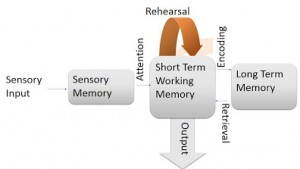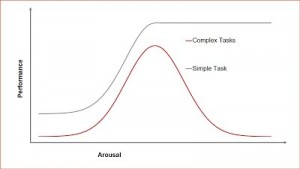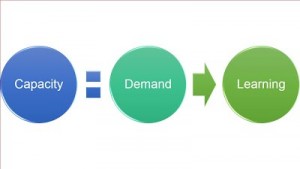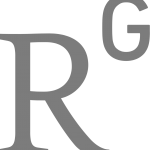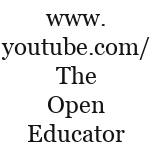What Is Learning?
Why, When, Where, What, and How Do We Learn?
Let me start with my failure to learn…………….
Learning Front Crawl (Freestyle) Swimming in the Summer of 2021
To feel and understand like a student, often, I would like to make myself a student such as preparing and taking an exam (e.g., PE licensing exam i`n 2021, Quality Certification exam in 2020, and Ergonomic Certification exam in 2017). Nevertheless, I have never felt like a struggling and frustrating student until I have tried Freestyle (Front Crawl) swimming in the summer of 2021! While I was struggling to learn this supposed to be easy–as it is called freestyle swimming–to learn, I had a lot of time to think/ponder about my students, teaching, learning, me as a student, teacher, learner, my triathlon racing, so many other things as well.
I grew up in a swamp area in my early childhood. Swimming is a survival skill there. And I knew/know floating and surviving hours in the water. However, in a long-distance race situation (over a couple of miles), freestyle is more efficient as compared to the other styles (e.g., swamp swimming techniques–head is always above the water to watch out for a venomous snake like cobra!). So, I have determined to learn freestyle as I am thinking about racing triathlons, especially the long-distance ones! I have started with watching a lot of YouTube videos on how to do a freestyle swimming – got all the techniques – and jump into the pool! After swallowing some pool water, I was able to make/swim freestyle. However, a month of practice 5-8 hours a week, I was still getting out of breath after about 100 to 200 yards! It feels like I was stuck somewhere, and I was not improving at all. So, I called a friend of mine who is a swimming coach for some lessons. After he watched me swimming freestyle, the look in his eyes told me that I was doing everything wrong as I know him for a while, and I can read him a bit! First thing he noticed that I was not kicking right – and my kicks are too weak for freestyle swimming!!! Nothing could be as surprising as this when a cyclist and a runner – averages over 150 miles of cycling and over 30 miles of running per week – hears that his kicks are too weak/inefficient for swimming. And the hand movement, head position, body position, and body rotation are as bad as it can get for a good freestyle swimming. Following his plan, now I am getting better.
This freestyle learning provided me with a great perspective/explanation for my teaching philosophy and theory that I have been believing for over two decades of teaching and learning. I have realized again and again that:
- What is taught must be useful in a race situation at that time and place, as everything in life, in fact, is a race!
- It must be challenging enough. If it’s not challenging, it’s probably not worthy to learn to be useful in a race situation.
- Students bring many strengths that are needed to be utilized to make them learn the new challenge!
- A strong cyclist and runner probably has a very strong set of legs that can be used to develop efficient kicks that can eventually help going long distance swimming easily.
- Students should be coached rather than lectured/lessoned
- Over 450 YouTube videos that I have produced will probably help them to make just a couple of 100 yards. However, to prepare them to win a race, they need coaching!
- Students must be challenged enough so that their weaknesses are visible to us – the coaches.
- We, the coach must also know their strengths so that it could be strengthened as well as utilized to strengthen their weaknesses.
- Once a weakness is addressed, a new challenge must be created to discover more weaknesses for improvements.
- And the process continues.
- Coaching must aim for a continual lifelong learning process that is sustainable for years to come.
What are Some Facts?
- Students are naturally curious, but not naturally good thinkers
- Factual knowledge must precede skill
- Memory is the residue of thought
- Students understand new things within the context of what they already know
- Students are more alike than different in terms of learning
- Intelligence can be changed through hard work
- Teaching, like any complex cognitive skill must be practiced to be improved
- (Willingham (2009 p. 163))
What Have I Learned from School?
Have I really forgotten everything learned from school?
- Not exactly!
- I may have forgotten the Newton’s second law of motion
- Lower-order learning
- Facts, figures, numbers, parameters
- Significantly low retention time
- I have forgotten mostly everything immediately after the final exam of the course; even the name of the course in some cases!!! Have I really taken that course? I don’t know! Probably! Probably Not!
- Lower-order learning
- What have I learned then?
- Higher-order learning (probably)
- Connecting dots!
- Critical thinking and reasoning skills
- Higher-order learning is forever!
- Connecting dots!
- Higher-order learning (probably)
- Now I know that some kind of force is needed to move things!
- I believe my understanding level has improved over the years in school; most facts and figures have been forgotten though!
What Should I Learn from School?
What do students mean by learning? What do they really want or need from us, the educators? Do they really want or need to get “their meaning of learning” from their valuable time in school?
- Not exactly!
- Whenever, Dr. Ahmed has asked students the $1M question
- What is learning? Or How do you learn?
- Learning by repetition is the most common answer!
- What types of learning they are referring to?
- Higher-order learning? Or
- Lower-order learning?
- Nobody answers learning by thinking!
- Of course few students like thinking!
- Because brain hurts!
- Of course few students like thinking!
- Think about the body builders. How do they get that shape?
- What is learning? Or How do you learn?
How Do I Get the Best from My Lazy Brain?
While many instructors believe in various learning styles, many assume that students are more alike in terms of learning. Nevertheless, the Cognitive Information Processing (CIP) theory in the following figure is same for whether there are learning styles or not.
Yerkes-Dodson Law visualized in the following figure states that human brains need a certain amount of arousal to be able to process information effectively and efficiently.
How Do I Achieve my Goal as an Educator?
My Theory of Teaching and Learning
My Philosophy of Teaching
My Open Educator
MY Open Educator YouTube Channel
Reference
- Svinicki, M. D., McKeachie, W. J., & McKeachie, W. J. (2011). McKeachie’s teaching tips: Strategies, research, and theory for college and university teachers. Belmont, CA: Wadsworth, Cengage Learning.
- Willingham, D. T. (2009). Why don’t students like school?: A cognitive scientist answers questions about how the mind works and what it means for the classroom. San Francisco, CA: Jossey-Bass.
- Young, M. S., & Stanton, N. A. (2002). Attention and automation: new perspectives on mental underload and performance. Theoretical Issues in Ergonomics Science, 3(2), 178-194.

